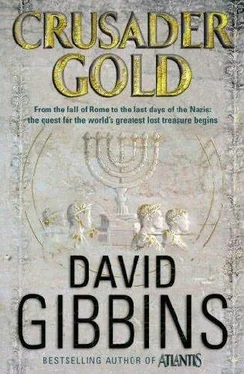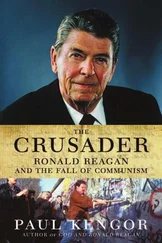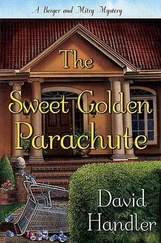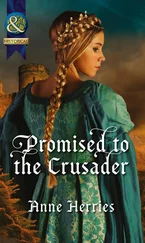David Gibbins - The Crusader's gold
Здесь есть возможность читать онлайн «David Gibbins - The Crusader's gold» весь текст электронной книги совершенно бесплатно (целиком полную версию без сокращений). В некоторых случаях можно слушать аудио, скачать через торрент в формате fb2 и присутствует краткое содержание. Жанр: Прочие приключения, на английском языке. Описание произведения, (предисловие) а так же отзывы посетителей доступны на портале библиотеки ЛибКат.
- Название:The Crusader's gold
- Автор:
- Жанр:
- Год:неизвестен
- ISBN:нет данных
- Рейтинг книги:3 / 5. Голосов: 1
-
Избранное:Добавить в избранное
- Отзывы:
-
Ваша оценка:
- 60
- 1
- 2
- 3
- 4
- 5
The Crusader's gold: краткое содержание, описание и аннотация
Предлагаем к чтению аннотацию, описание, краткое содержание или предисловие (зависит от того, что написал сам автор книги «The Crusader's gold»). Если вы не нашли необходимую информацию о книге — напишите в комментариях, мы постараемся отыскать её.
The Crusader's gold — читать онлайн бесплатно полную книгу (весь текст) целиком
Ниже представлен текст книги, разбитый по страницам. Система сохранения места последней прочитанной страницы, позволяет с удобством читать онлайн бесплатно книгу «The Crusader's gold», без необходимости каждый раз заново искать на чём Вы остановились. Поставьте закладку, и сможете в любой момент перейти на страницу, на которой закончили чтение.
Интервал:
Закладка:
The triumph was heading inexorably towards its climax. Next came the prisoners, men, women and children, hundreds of them chained together and corralled between lines of spear-carrying legionaries. Following time-honoured practice, they were well dressed in purple robes, a way of concealing their wounds and making them seem more formidable adversaries. Vespasian leaned forwards and eyed them keenly. These were a different breed from the wild-eyed savages he had brought back from Britain thirty-five years previously. His Jewish informant Josephus had told him his people believed their God came with the Romans to purge their temple and blot out their city, as punishment for corruption. Yet these seemed a proud people, their heads held high, not captives broken by remorse. In their midst was the rebel leader Simon, shackled between two legionaries, a handsome bearded man struggling to walk tall and seemingly contemptuous of his fate. As he came level with the podium he flashed his dark eyes up towards the emperor, and for a second Vespasian felt his soul pierced, a fleeting moment of disquiet that he quickly pushed aside.
Another blast from the trumpets signalled the climax of the procession. Vespasian turned from the prisoners and looked towards the arch. Josephus had told him about the spoils from the temple, and he was eager to see them. Now they came, not heaped extravagantly on carts like the earlier treasures, but carried individually so they could be properly viewed. First came the sacred curtain that screened the sanctuary from the rest of the temple. Then came the vestments of the high priests, heavy garments dyed in precious Tyrean purple and bedecked with brilliant jewels. Next the scrolls of their ancient testament, the sacred laws that Josephus called the Pentateuch. Then a long procession of ritual objects from the sanctuary-cups, platters, ablution vessels, all in solid gold, followed by a heavy golden table carried by four legionaries, wreathed in smoke from incense burners attached to each corner. As the heady aroma of cinnamon and cassia wafted over the podium, Vespasian felt himself transported back to his early days of soldiering in the East. When he opened his eyes he was met with an apparition that left him gaping in awe.
Through the swirling smoke that lingered in front of the arch came a treasure like nothing seen before in Rome. Josephus had described it well but Vespasian had not expected such an immense weight of gold, so burdensome it took twelve legionaries to heft it on their shoulders. As they emerged slowly into view he began to make it out, a glowing object the height of a man or more. Rising from a two-tiered octagonal base was an ornate tapering column, on either side of which were branches extending upwards symmetrically to the same level. It was like a huge golden trident of the sea god Neptune, only here the tips of the prongs were fashioned into ornate lamps, seven in all. As the bearers cleared the arch a slave emerged with a burning torch which he used to light incense in each of the lamps, sending thick white smoke tumbling down over the throng on either side of the Sacred Way and enveloping them like a dawn mist.
Vespasian knew this was the menorah, the most sacred symbol of the Jewish Temple. Josephus had told him that the number seven held special significance for his people, and harked back to the days of their earliest prophets. He said that robbing the Temple of the menorah would be like an enemy stealing the statue of the she-wolf from the Capitolium, an unimaginable desecration that would tear out the heart of Rome itself.
A sudden commotion to the right drew the crowd away from the menorah. They had drunk their fill of treasure and were now baying for blood. Vespasian knew what was coming next, an act fixed in ritual since the days of Romulus and Remus. Far up under the Capitoline Hill he could see where the crowd had parted to form a wide circle around an ugly gash in the ground, the swaying mob held back by a detachment of the Praetorian Guard, their swords drawn. Here had gone Jugurtha, enemy of the Roman Republic, Vercingetorix the Gaul, the British chieftains Vespasian himself had dragged to this spot. He could see where the Jewish prisoners had been formed up around the edge of the circle, motionless and silent though their chains had been removed. In the centre the bearded man Simon was being tormented like a dog, baited and prodded by the surrounding guards like a beast in an amphitheatre. He was doing all he could to remain upright and dignified, but offered no resistance as his tunic was torn off and a noose was thrown violently around his neck. The crowd jeered as he was jabbed at spear-point towards the hole. Suddenly he tumbled out of sight. At that moment the scene was lit by a blinding beam of light, the sun having risen above the Temple of Mars, the war god, behind Vespasian, and reflecting dazzlingly off the menorah and the other golden spoils assembled in the Forum.
The crowd erupted. It was yet another good omen.
Vespasian remembered those dark eyes and set his face impassively to the west.
Let this be an end to it.
For a few moments there was a hushed silence, like the silence when the eagles had flown over, then a hooded man emerged from the pit holding up something in his hand. The crowd roared. Now it was the turn of the other prisoners. Vespasian watched dispassionately as the children were separated from their parents and led forwards. A woman fainted, and was held up by the hair and decapitated on the spot. A man broke free to stagger after his child and was stamped to a bloody pulp by one of the Nubians. The children were pushed to the edge of the pit in groups of three and had their throats cut, their little bodies hurled into the chasm. Then the women, then the men. The men were beheaded, gladiators with masked helmets bringing their giant curved swords down in unison, each sweep of steel accompanied by a single drumbeat as if they were oarsmen in a galley. Bodies piled upon bodies. Steel flashed up and down in the glare of the sunlight. The crowd swayed, gorging on blood. Vespasian glanced again at the menorah. The seven prisoners he had ordered spared hung from posts on the far side of the pit, their naked bodies sprayed crimson. They would go home to their compatriots in the desert of Judaea and bring news of the vengeance of Rome, of the submission of their most sacred object to the vaults of the victor. As long as Rome held the treasure of the Jewish Temple they would never dare rise against her again. Any trouble and their guiding light would be extinguished forever. It was the Roman way.
The executioners had done their work. Now the triumph could begin in earnest, days of feasting and games, piety and acclamations. Even before the crowd had shouted their exaltation, the bulls which had drawn the carts of treasure had been led up under the Temple of Jupiter, and already the altar and the statue of the she-wolf were spattered with blood from the first sacrifice.
Vespasian turned to leave the podium, still fingering the coin. He shrugged off his purple cloak and donned the crimson robe held out for him by two slaves. He would join his sons, Titus and Domitian, on horseback at the rear of the procession, leading a line of priests to the altar below the Temple of Jupiter, where he would perform his customary rituals as pontifex maximus. He glanced one last time at the marble plan and made a silent vow. The age of conquest would end. His would be an age of reconstruction, a return from decadence to the virtues of his ancestors. On this very spot where he stood he would build a Temple of Peace, a temple greater than any other. Here he would store for all time the treasure of this vanquished people. He remembered those dark eyes again. He would do all in his power to ensure that the menorah was never again paraded in triumph through the streets of Rome. He turned to go, then hesitated and tossed the coin far into the crowd, watching it streak in a high arc in front of the shimmer of gold as it disappeared forever into history.
Читать дальшеИнтервал:
Закладка:
Похожие книги на «The Crusader's gold»
Представляем Вашему вниманию похожие книги на «The Crusader's gold» списком для выбора. Мы отобрали схожую по названию и смыслу литературу в надежде предоставить читателям больше вариантов отыскать новые, интересные, ещё непрочитанные произведения.
Обсуждение, отзывы о книге «The Crusader's gold» и просто собственные мнения читателей. Оставьте ваши комментарии, напишите, что Вы думаете о произведении, его смысле или главных героях. Укажите что конкретно понравилось, а что нет, и почему Вы так считаете.












